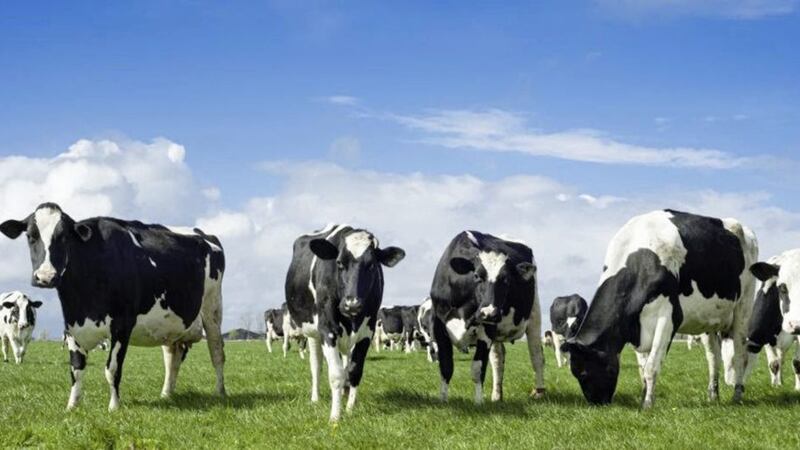'LIVESTOCK lockdown' has been likened to human experiences during the pandemic and may be damaging dairy cows' emotional wellbeing, Queen's University (QUB) scientists have said.
Researchers say they hope their findings, published in the Nature journal Scientific Reports, "encourages farmers, retailers, government and consumers that pasture access is important for cow welfare, and should be protected".
The study, led by QUB in co-operation with the Agri-Food and Biosciences Institute, is the first of its kind and examines whether negative moods in humans "linked to pessimistic judgements about ambiguous stimuli" are also seen in cattle.
With humans, depression and anxiety sufferers tend to expect fewer positive outcomes in life, while happy emotions and moods are linked to more optimistic judgements.
Dr Gareth Arnott said until now "the effects of pasture access on dairy cows' psychological wellbeing have been poorly understood".
Twenty-nine Holstein-Friesian dairy cows were given 18 days of overnight pasture access and 18 days of full-time indoor housing and trained to approach a food rewarded bucket location, rather than an unrewarded bucket location.
Cows kept indoors full-time were faster to approach the known rewarded bucket location, which researches said "suggests that an animal has fewer rewards in its life" - leading to a conclusion "pasture is a more rewarding environment for dairy cows".
"Britain and Ireland have mostly resisted the trend towards housing dairy cows indoors full-time," researcher Andrew Crump said.
"We hope that our research encourages farmers, retailers, government and consumers that pasture access is important for cow welfare, and should be protected."







